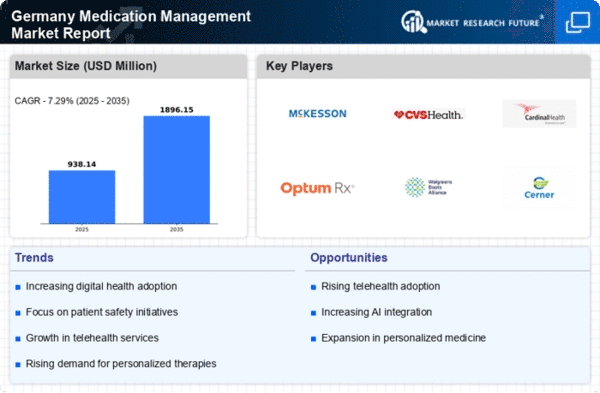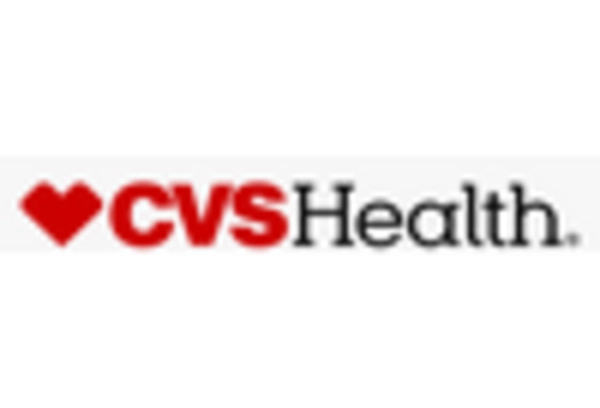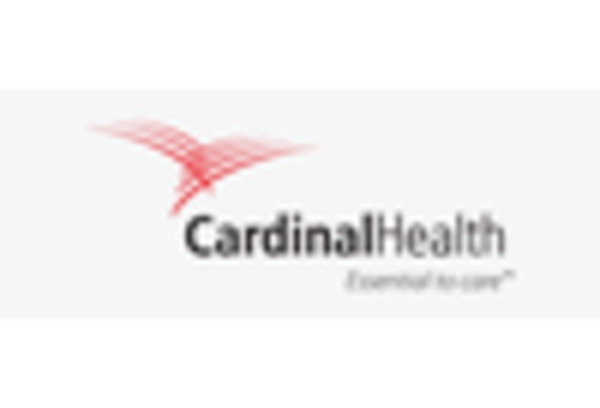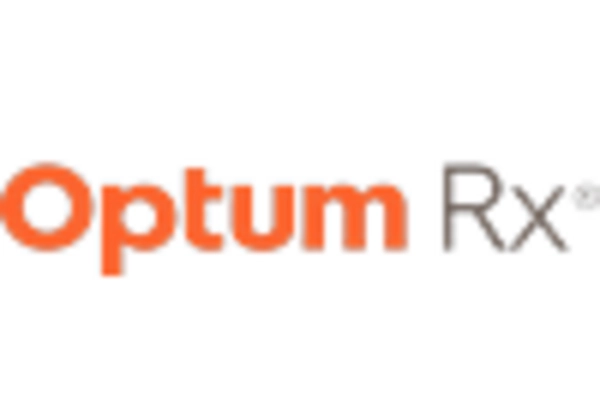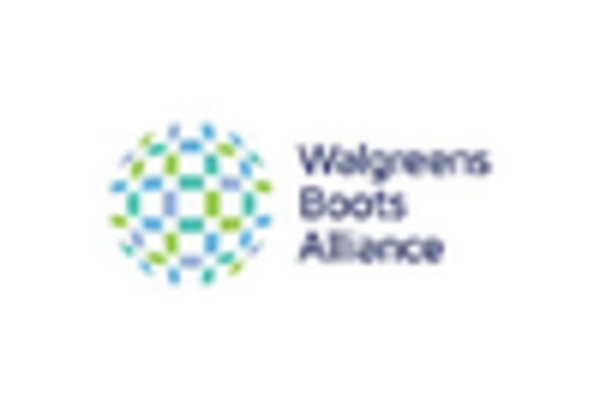Integration of Pharmacogenomics
The integration of pharmacogenomics into medication management practices is emerging as a pivotal driver in Germany. By 2025, it is projected that around 30% of healthcare providers will incorporate genetic testing into their medication management protocols. This approach allows for personalized medicine, where treatments are tailored based on individual genetic profiles, potentially enhancing therapeutic outcomes. The growing recognition of pharmacogenomics is likely to lead to more effective medication regimens, reducing the trial-and-error approach traditionally associated with prescribing. Consequently, the medication management market is expected to expand as healthcare systems increasingly adopt these advanced methodologies, aiming to improve patient care and optimize medication efficacy.
Government Initiatives and Funding
The German government is actively promoting initiatives aimed at enhancing the medication management market. Recent policies have been introduced to support the integration of digital health solutions into traditional healthcare frameworks. For instance, funding programs are being allocated to encourage the development of innovative medication management technologies. In 2025, it is anticipated that government investments in digital health will exceed €500 million, fostering collaboration between public and private sectors. These initiatives not only aim to improve patient outcomes but also seek to reduce healthcare costs associated with medication mismanagement. As a result, the medication management market is likely to benefit from increased funding and support, driving innovation and accessibility.
Aging Population and Chronic Diseases
Germany's demographic shift towards an aging population significantly impacts the medication management market. By 2025, it is projected that over 25% of the German population will be aged 65 and older, leading to an increased prevalence of chronic diseases such as diabetes and hypertension. This demographic trend necessitates more comprehensive medication management strategies to ensure that elderly patients receive appropriate therapies. The growing burden of chronic conditions is likely to drive demand for medication management services, as healthcare providers seek to optimize treatment plans and minimize adverse drug interactions. Consequently, the medication management market is expected to witness substantial growth, as stakeholders focus on developing tailored solutions for this vulnerable population.
Rising Awareness of Medication Safety
There is a growing awareness regarding medication safety among healthcare providers and patients in Germany, which is influencing the medication management market. Educational campaigns and initiatives aimed at reducing medication errors are becoming more prevalent. In 2025, surveys indicate that approximately 60% of patients are now more informed about their medications and potential side effects. This heightened awareness is prompting healthcare professionals to adopt more rigorous medication management practices, including regular reviews and consultations. As a result, the demand for medication management services is expected to rise, as both patients and providers prioritize safety and efficacy in treatment regimens. This trend is likely to contribute positively to the overall growth of the medication management market.
Technological Advancements in Healthcare
The medication management market in Germany is experiencing a notable transformation due to rapid technological advancements. Innovations such as electronic health records (EHRs) and telemedicine platforms are enhancing the efficiency of medication management. In 2025, it is estimated that approximately 70% of healthcare providers in Germany will utilize EHRs, facilitating better tracking of patient medications. Furthermore, the integration of artificial intelligence (AI) in medication management systems is projected to improve prescription accuracy and reduce medication errors.. This technological evolution not only streamlines processes but also empowers healthcare professionals to make informed decisions, thereby potentially increasing patient adherence to prescribed therapies. As a result, the medication management market is likely to expand, driven by the demand for more efficient and reliable healthcare solutions.


